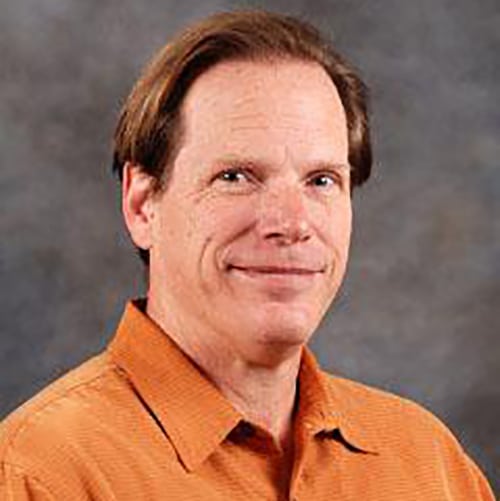
- This event has passed.
Analytical Chemistry Seminar Series: Kevin Plaxco – University of California Santa Barbara
November 17, 2023 | 1:00 pm - 2:00 pm

About the Speaker:
Bio:
Kevin Plaxco, a Distinguished Professor at the University of California, Santa Barbara, holds appointments in the Department of Chemistry and Biochemistry and the Biological Engineering Graduate Program. Prior to joining UCSB in 1998, Dr. Plaxco received his Ph.D. from Caltech and performed postdoctoral studies at Oxford and the University of Washington. Dr. Plaxco’s research focus is on the physics of biomolecular folding and its engineering applications. A major aim of the group’s applied research is to harness the speed and specificity of folding in the development of sensors, adaptable surfaces, and smart materials. Dr. Plaxco has co-authored more than 250 papers and a dozen patents on protein folding, protein dynamics, and folding-based sensors. He serves on the scientific boards of a half dozen biotechnology firms, several of which are commercializing technologies developed by his group, and has also written a popular science book on Astrobiology.
Research:
The Plaxco Group is a highly interdisciplinary research group in the Department of Chemistry & Biochemistry at the University of California, Santa Barbara, headed by Prof. Kevin W. Plaxco. They build bioanalytical sensors and investigate protein biophysics, among other basic and applied research avenues.
About the Seminar:
Title:
Recent advances in in vivo molecular monitoring
Abstract:
The availability of technologies capable of tracking the levels of drugs, metabolites, and biomarkers in real time in the living body would revolutionize our understanding of health and our ability to detect and treat disease. Imagine, for example, a dosing regimen that, rather than relying on your watch (“take two pills twice a day”), is instead guided by second-to-second measurements of plasma drug levels wirelessly communicated to your smartphone. Such a technology would provide researchers and clinicians an unprecedented window into physiology and pharmacology, and could even support ultra-high-precision personalized medicine in which drug dosing is optimized minute-by-minute using closed-loop feedback control. Towards this goal, we have developed a biomimetic, electrochemical sensing platform that supports the high frequency, real-time measurement of specific molecules (irrespective of their chemical reactivity) in situ in the blood and solid tissues of awake, freely moving subjects.